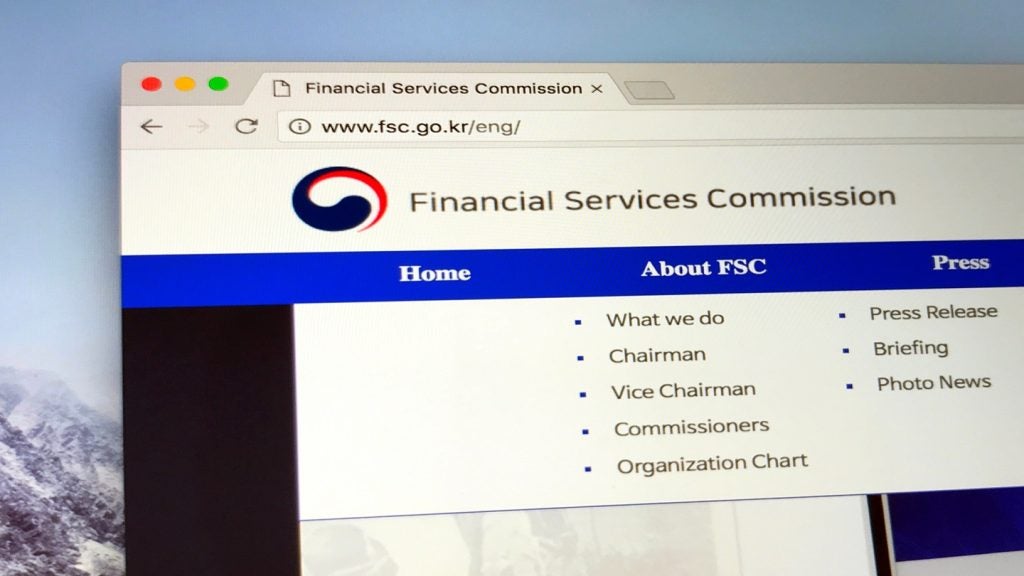
The Career Journey of Zarin Mehta
Unlike some who are part of a musical dynasty, Zarin
Mehta went off the beaten track to become a successful accountant
before he got back on the path towards a career in the world of
classical music and orchestras. He talks to The Accountant
about his journey from Mumbai to New York.

Access deeper industry intelligence
Experience unmatched clarity with a single platform that combines unique data, AI, and human expertise.
One liked notes, the other liked
numbers: this is how Zubin Mehta became one of the worlds most
well-known orchestra conductors and his younger brother Zarin Mehta
became an accountant turned president of the New York Philharmonic
(NYP) orchestra.
“As simple as that”, the 73-year-old
Indian-born Zarin Mehta tells The Accountant.
If you opened the door of their
comfortable but not lavish Mubai-childhood home you would hear a
consistent stream of music, night and day and in every corner. In
India, in the 1950’s, being a musician wasn’t a lucrative
profession and so not at the top of the career list, even for the
sons of violinist and founder of the Bombay Symphony Orchestra
Mehli Mehta.
“My brother started off with the idea
of being a doctor and I decided I wanted to be an accountant
because I like numbers,” Mehta recalls affectionately.

US Tariffs are shifting - will you react or anticipate?
Don’t let policy changes catch you off guard. Stay proactive with real-time data and expert analysis.
By GlobalData Notes and numbers
Notes and numbers
have indeed entrenched during his life, with Mehta starting his
career counting the kilometres that separated his home city of,
Mumbai, from London, where he arrived age 17 to fulfil his dream of
becoming an accountant. His first foray began through an
apprenticeship at an accounting firm based in Stratford, East
London.
“It was extremely cold, there was no
heating and I lived in a small house together with a family with
three young daughters and two others. I needed two buses to get to
the office and I didn’t understand a word of what was being spoken
to me. Probably they couldn’t understand me either,” Mehta says,
revealing a distant Indian accent watered down by more than five
decades of English language.
“I remember I lived on £10 ($16) a
week…I paid £4 a week to the family and they gave me a room and
board, breakfast and dinner; the lunch was £2.09 per week with a
tip – so £4.50 went on food; and with the £5 left over I could do
what I wanted,” Mehta recalls.
While he was in London, Mehta not only
took his first steps into the accountancy world he also attended
school to get his A ‘levels. Instead of going to university he
learnt his trade and gained his accounting qualification, from the
Institute of Chartered Accountants in England and Wales, from which
he was recently awarded an outstanding member award, on the
job.
This type of route into the profession
is now making a comeback in the UK due to the heavy increase in
university fees.
Moving towards the
music
After spending about three years in
the UK capital, Mehta decided a change of city was needed if he was
to progress up the accounting career ladder and headed for the US –
commonly known as the ‘land of opportunity’.
“I couldn’t consider staying on in
London, because in those days as an Indian I could not make any
progress in the City. I could have stayed on with the firm but I
could’ve never become a partner,” Mehta stresses.
“I saw an ad – I think it was in
The Times – looking for seniors for international work: I
responded to it and I went over to Washington for the interview.
But I must say I didn’t like Washington, I found it a very
bureaucratic little city, quite different from now.”
During his trip Mehta headed to the
bright lights of New York City and decided he would door step a
number of accountancy firms for an interview, but destiny called
and after accepting an invite at his brother’s house in Canada he
found new direction to his plans.
“My brother had just got a job in
Montreal so I went off to see him and the second I was there I was
having dinner and sitting next to the chairman of Coopers and
Lybrand [now PwC],” Mehta explains.
“He said: ‘If you are looking for a
job, come and see me’, as accountants were very much in demand. I
also went to a couple of other firms and they all offered me jobs,
but I decided the first one sounded the nicest,” Mehta fondly
remembers.
After acquiring a green card the
20-year old accountant said farewell to London for good.
“I basically asked one of my old
friends to send my belongings over to Montreal and that was the end
of London,” he says.
During the sixties and the seventies,
Mehta’s accountancy career matured in Canada, where he specialised
as a general auditor and moved rapidly up the ranks to become
partner at Coopers and Lybrand.
This also marked the beginning of the
next chapter in Mehta’s life, where his passion for numbers
eventually gave way to his other passion, the classical music
industry – a not so unexpected development coming from a classical
music dynasty.
“Orchestras in North America survived
because leaders of the community were on the board and did
governance and raised money: that’s how, when I became a partner,
the Montreal symphony asked me to join the board and I did in 1973,
getting more and more involved,” Mehta says.
“By 1980 I was chairing the committee
that was looking for an executive director and we couldn’t find
anybody because of the peculiar nature of the job, which was
running a Northern America orchestra while being able to speak
French,”
“After a year and a half of being
frustrated I decided that maybe I would take a sabbatical year and
run the organisation myself. The first year I had success raising
money and running the place and I enjoyed it, so I just thought I’d
stay a little longer, then a little longer and then it became my
profession. I took a sabbatical for three years (from the firm),
but eventually I had to resign,” he says.
 Counting on
Counting on
accounting
Mehta admits his knowledge and
appreciation of music, in his second career, played a greater role
than his accountancy background. But, would he have got where he is
today without it?
“[An accountancy background] helps you
wherever you go. I’m not trying to advertise it, but the training
you get, the facility with the figures [is also useful] when you
are running an orchestra. It’s a little bit like being in practice,
when you are not doing only one job but you are working with eight
different clients on the same day. It’s the same thing when you are
running an art organisation; you also have to be an entrepreneur.
You have to know what’s going to work, what is good to raise money
and to sell,” Mehta says.
The Montreal Philarmonic Orchestra was
the door way to Mehta’s music industry career path leading him to
become executive director then president and chief executive of one
of the US’s oldest outdoor festivals, Ravinia Festival where he
pioneered its jazz festival and a world music series, and then to
his current role as president of the NYP orchestra.
While Mehta counts passing his
Chartered Accountant exams among the most memorable moments of his
life he says it is his current role that links to his most
“unusual” and “cherished” highlight – a unique NYP concert in North
Korea he helped bring to fruition in 2008. This was not only a big
deal for NYP but also for the US as it would be the first time a US
cultural organisation had appeared in the country and would also
see the largest group of US citizens arrive there since the Korean
War ended in 1953.
“The whole thing was unusual. Out of
the blue, [Kim Jong-il] invited us [to play]: the ambassador of the
UN came to my office to see me and went through [things]…At this
stage we didn’t know why it was happening, but it did happen and
it’s now recorded on DVD and shown all over the world. We were on
the front page of every newspaper,” Mehta explains.
“It was unusual, because I didn’t know
why they wanted us. As we are speaking now, they’ve restarted
negotiations on de-nuclearisation and the man who is leading the
North Korean delegation, the deputy foreign minister, was there the
first time I went and we spent three hours together just chatting.
For him I was representing the free world.”
Mehta describes his time in the strict
communist country as a “funny adventure”.
“I guess one of the most unusual
aspects of it was the airport only flies little DC3 planes and we
were going to be 300 people large, including (90) Western
journalists,” Mehta says.
Ensuring the media had access to the
concert was an important stipulation Mehta negotiated before
agreeing the NYP would go over and play. He says it was a big feat
given that “there has never been any reporting from that country
without censorship and control” and the concert made headlines.
“But they allowed all these news
agencies to set up their own direct links to their newspapers and
there were live reports done by the BBC and CNN they just allowed
everything, we told them we are not going unless there was freedom
of press,” Mehta says.
“We also had South Koreans in the
orchestra and we said: ‘we assumed nothing will happen to
them’.”
Surprisingly, raising the finances to
fund the trip was one of the easier moments Mehta says despite the
cost set at $2m, but logistically it was a little harder especially
having to work out how to transport a vast amount of people and
equipment with no aeroplane.
“We had to get a plane from South
Korea and I had the nerve to go and ask a South Korean airline to
lend me a (747) for three days. The plane came, picked us up, flew
us to Pyongyang, left and came back two days later to pick us up.
They had to fly out to the sea and come round because you cannot
cross the border and in order for us to get off the plane, we
needed step ladders, they didn’t have them,” Mehta notes.
Mehta is due to step down as NYP
president later this year, but he plans to continue managing
orchestras, managing concerts and wants to “consult in some
fashion, maybe produce some concerts, maybe get involved in smaller
festivals, but not work 24/7 like I have been”.






